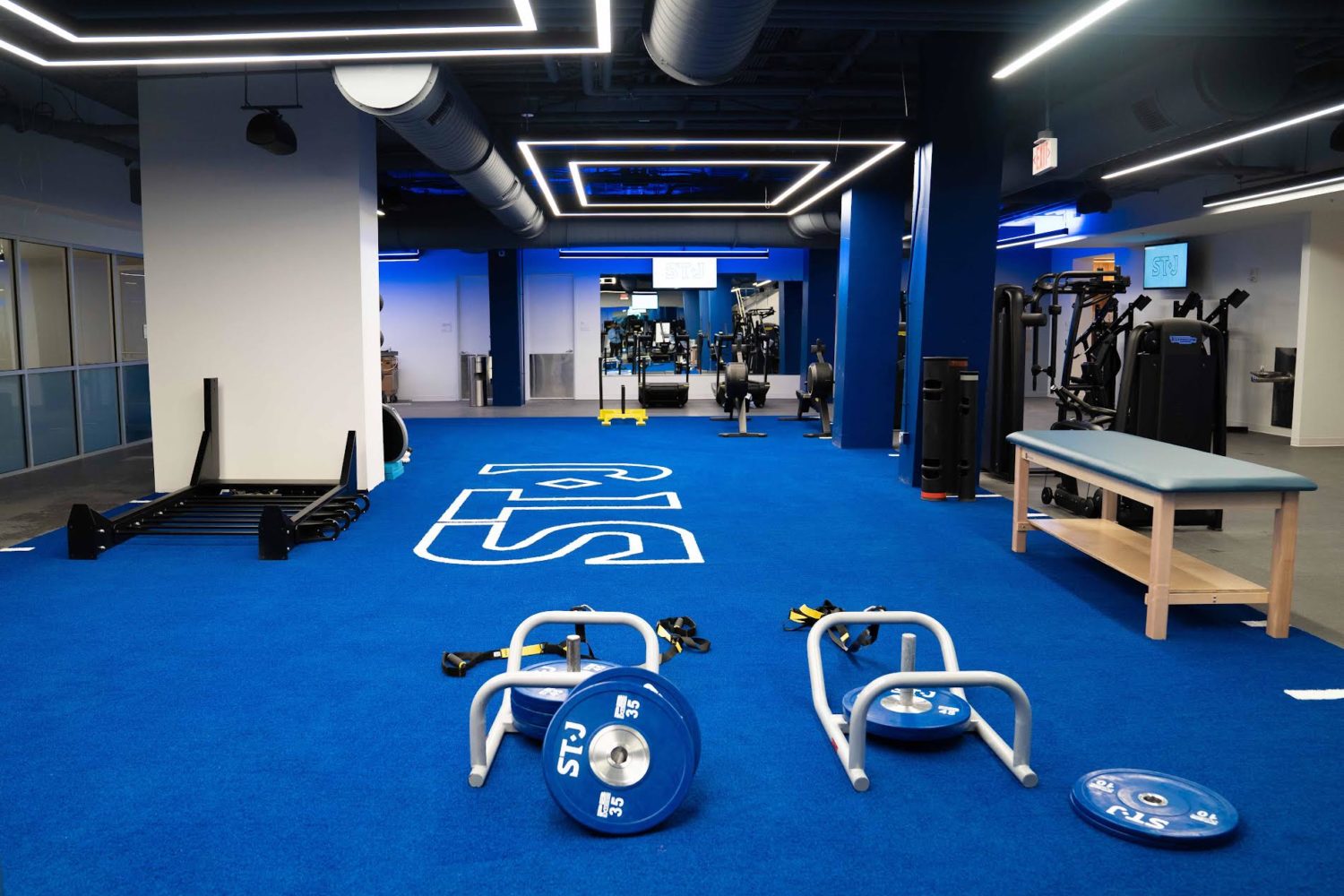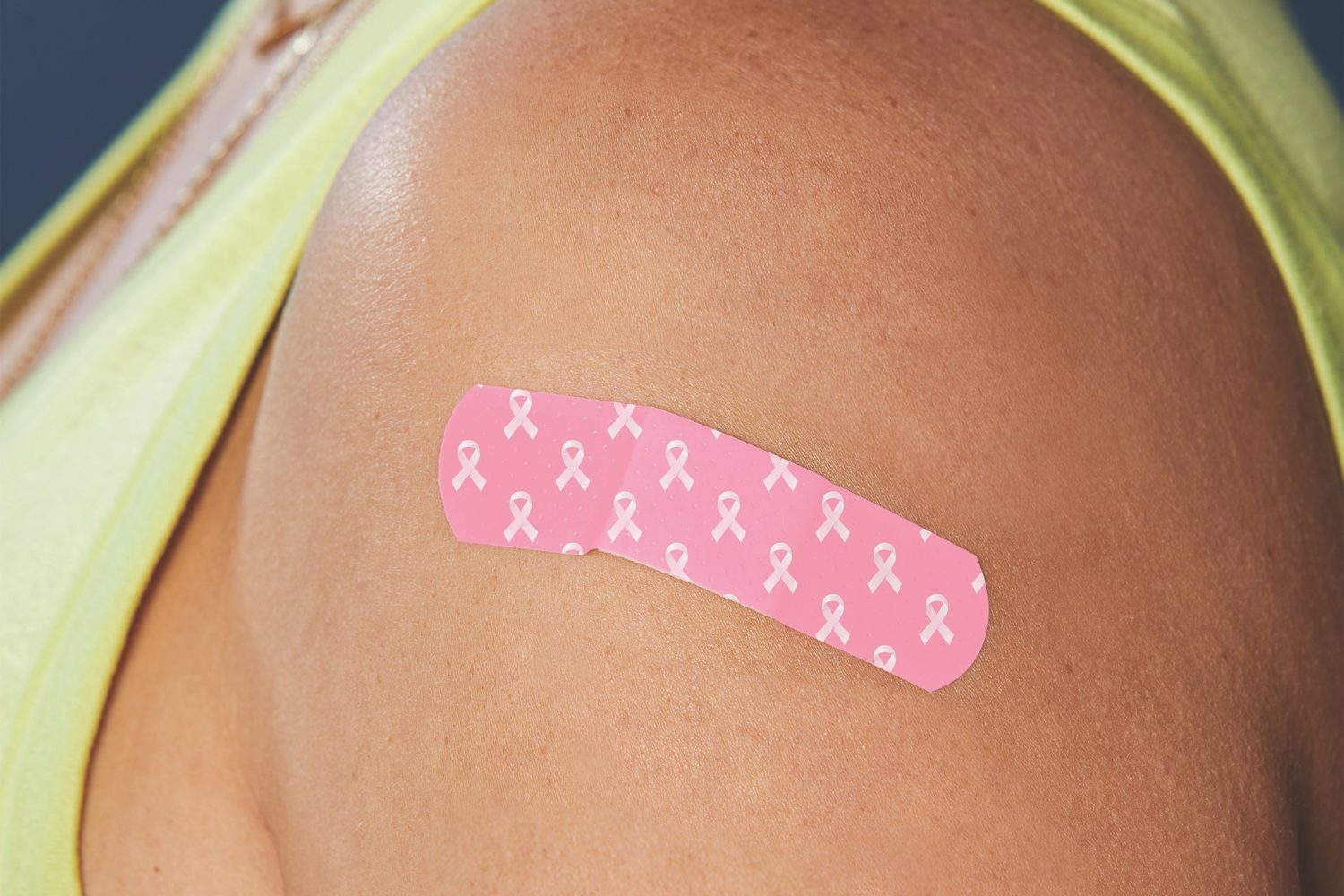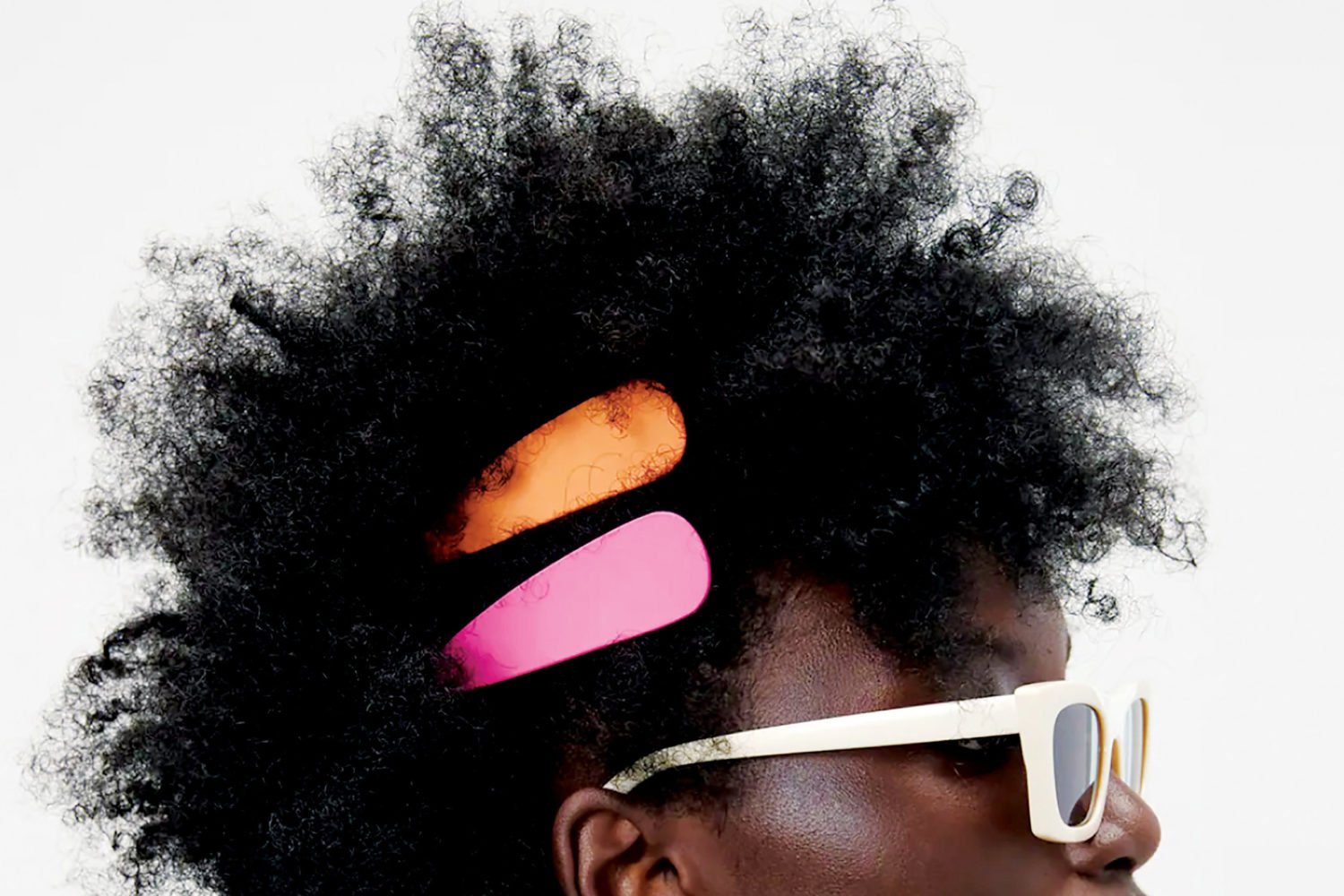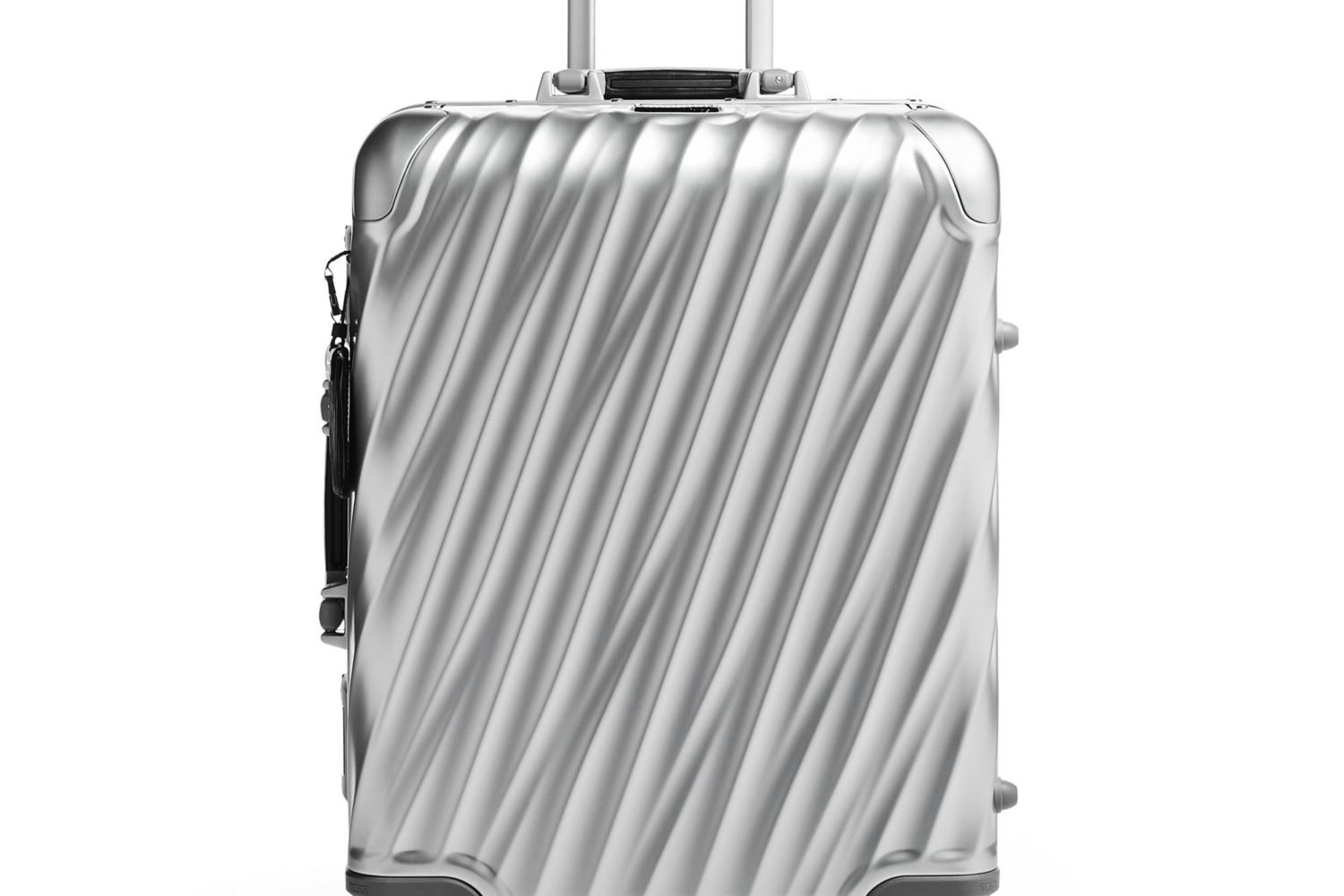I felt great the day I went in for my first colonoscopy. I’d just turned 59. I’d recently spent two weeks hiking and golfing in the Monterey Peninsula. I was losing weight. I had the blood pressure of an 18-year-old. I felt better than I had in years.
I was supposed to get a colonoscopy when I was 50, but I’d been putting it off. I knew I’d need anesthesia and would have to miss a day of work. It seemed like too big a deal.
I had an extra week off in August 2005 so I decided to book all my appointments—dentist, eye doctor, physical, colonoscopy—and get everything out of the way.
I’d never had health problems. I’d been to the hospital when I was eight to get my tonsils out. I didn’t usually get nervous about medical tests, but I was nervous about this one. A sixth sense, maybe.
The night before a colonoscopy you have to clean out your system. I couldn’t eat. I had to drink something that tasted like cod-liver oil every 15 minutes for two hours. It was awful.
When I got to Dr. Michael Kee gan’s office in Chevy Chase, I put on my hospital gown, and a nurse wheeled me into the operating theater. They put the twilight anesthesia in my IV to sedate me, but I wasn’t totally out of it.
Dr. Keegan knows Pat Collins, a good friend of mine from Channel 4, so as he started the procedure we were chatting about Pat’s father. Then I remember him saying, “What’s this?”
I felt his scope turn a curve and hit something. It hurt. I groaned, but I wasn’t aware enough to ask him what was going on. I remember him saying, “I’m going to tattoo this.” That means they put ink on it so it can show up in a CT scan.
A colonoscopy usually takes 30 minutes, but mine took more than an hour. My wife, Gina, was in the waiting room. She’s a Methodist minister. We’ve been married for 13 years.
I got dressed and went out into the waiting room. Dr. Keegan called me and Gina into his office. He said, “You have a tumor. It might be benign, or it might be cancer. We don’t know.”
He told me the tumor was going to have to come out.
I didn’t understand what he was saying because my anesthesia hadn’t worn off. Gina was quiet. I think she was shaking.
I’ve had people tell me they sat behind me in a movie theater and knew it was me because of my laugh. My father, Miller, had a distinctive laugh, too. He’d go to the famous Majestic Theatre in San Antonio, where I grew up, and someone would hear him laughing from across the theater and yell his name.
I think I got my optimism from my parents. My mother, who’s 92, was always telling me I’d do great things. My father, who barely had a high-school education, was a salesman who could play piano by ear. He taught himself golf and played in a PGA tournament in 1935. He loved film and theater. He took me to see You Can’t Take It With You when I was 12. That’s when I got hooked.
Being a glass-half-full kind of guy has helped me the past 18 months. My life has changed a lot: I battled cancer. I left my job at Channel 4 after 32 years. I could say, “Oh, I had cancer, and I wanted to scale back,” but that’s not the case—I was asked to take early retirement because of budget cuts.
I choked up when they gave me a cake in the newsroom. Every day it was a thrill to walk into that station. I started as a features reporter. For one story, I called the USDA and ordered a miniature Vietnamese pot-bellied pig, named him Spot, and brought him home to live in my basement. I walked him on a leash and let him sleep in my bed.
I did the weekend weather for nine months in the 1970s. That was the easiest job I’ve ever had. I called the weather bureau, they dictated the forecast, and I read it. I used a Velcro map.
My favorite story was called “My Hometown.” I went back to my mother’s house in San Antonio. I interviewed Jean Longwith, my high-school speech teacher, who’d introduced me to broadcasting. I’d tried out for the talent show when I was 17, and she’d told me my standup routine was terrible. She asked me to emcee instead. I made my first joke, and the crowd roared. When Jean Longwith started a broadcasting program at San Antonio College, I followed her there.
In 1979 I covered the Star Trek premiere at DC’s MacArthur Theater. After that, my bosses gave me a shot at movie reviews , which I’d done at my first job in Dallas. I reviewed American Gigolo. I hated the movie, but Jim Vance liked having reviews in the newscast—so I was in.
For years I sat at the anchor desk with Vance, Dave Marash, George Michael, and Bob Ryan. The only thing we didn’t have was a pitcher of Budweiser and some peanuts.
They finally found Doreen Gentzler in 1989. The five of us were a team for 17 years. Doreen did a story about me last March for colon-cancer awareness month. Soon I was getting e-mails and cards from strangers. Someone told me, “You’re on the prayer list at my church.”
A few days after my colonoscopy, Gina and I met with my surgeon, Dr. Martin Paul, at his office.
He said, “It’s cancer.”
I did everything I could to breathe deeply and relax. I felt a pain in my gut.
I knew nothing about colon cancer. I worked with Katie Couric, whose husband, Jay, died of colon cancer—so I’d heard of it. But I thought it meant your intestines would be yanked out.
I asked my doctor if too much coffee could have given me cancer. He said no. I wondered if it was the Styrofoam cups I’d drunk from for years. Or the fertilizer they use on golf courses.
The truth was, nobody had an answer. Doctors don’t know what causes colon cancer.
I didn’t start searching the Internet. I’m not a fan of information overload—that’s a good way to drive yourself nuts. I trusted my doctors.
Gina and I had this attitude of, “Okay, here we go.” She’s strong. She’s run the Marine Corps Marathon three times. She was going to be my manager.
She was in the hospital room with me after my surgery on September 13, 2005, two weeks after my colonoscopy. They had to resection my colon. The cancer was in the bend of my colon, just below my stomach. They took the tumor out and tied me back together.
Dr. Paul said, “We found it in one lymph node. It’s Stage 3. That means we’re going to have to give you chemotherapy. We’re going to treat this very aggressively to make sure you’re okay.”
He was kind about telling me. It’s not always the words—it’s the way they’re delivered. I call it the “emotional envelope.” I could tell Dr. Paul cared. Later, he called me from his cell phone on weekends.
Gina and I knew what Stage 3 meant. We knew that was a big deal. It’s like my movie ratings: Three stars says a lot.
We’d been hoping it was Stage 2. If cancer is Stage 1 or Stage 2, doctors can often remove it and monitor it. When cancer gets really bad it goes to Stage 4.
I think they caught mine just before it progressed to Stage 4. If I’d gone in for my colonoscopy sooner, they might have caught it when it was just a polyp.
After my diagnosis, a doctor who’d urged me for nine years to get a colonoscopy admitted he’d never had one.
I used to think cancer was a death sentence. For the first week after my diagnosis, I’d leave work and think, “This is the last time I’ll be here.” I’d see Gina and think, “I’m not going to see her anymore.”
I’d had a boss at Channel 4 who had cancer. He’d sent out an e-mail saying he had a tumor in his kidney and doctors were going to take it out and he’d be back. But I remember thinking he wouldn’t be back.
I didn’t tell anybody I thought I was going to die. I think you have to go through that down time to get back up. Soon those thoughts went away. I’m not sure how that happened. I think I just plugged into faith.
Faith doesn’t have to be religious. It’s an interesting word. It can mean different things to different people. Faith can mean the power to get through the next two weeks. Faith can mean marking the halfway point. Faith can mean understanding that you have to accept what’s happened, however it turns out.
One day, after the shock wore off, I woke up and decided to get to work. I started by telling myself I wanted to live.
About a month after my surgery, I started chemotherapy. I went every other Friday morning for six months. My oncologist at Sibley Hospital, Dr. Fred Smith, has an office in Chevy Chase. I’d go into this big room with windows everywhere and lounge chairs. Everybody called it “chemo lounge.”
I saw the same people every week. Sometimes I slept. Sometimes I brought a book. People would bring cakes and cookies. I made friends. There was a woman there who had breast cancer, and we talked about Desperate Housewives and The Sopranos.
I got to know the nurses. I used to bring them DVDs. One nurse, Ellen, saw more movies than I did—I see three or four a week—so I brought her a book of independent movie reviews. I talked to another nurse about her love life. I thanked them a lot. I have so much respect for doctors and nurses now that I’ll always be in awe of the medical profession.
Chemotherapy didn’t hurt, but the side effects were hard. I had a tingling in my fingers and feet. My taste buds stopped working. The hair on my head stopped growing, and the hair on my body fell off. I was so sensitive to cold that I couldn’t take anything out of the refrigerator unless I wore gloves. I rarely slept through the night.
I came home exhausted. I’d nap and then go in for the 11-o’clock news. I had massages and acupuncture to help keep my energy up.
I had to wear a Mediport, which was like a plastic valve they inserted under the skin in my right shoulder. Every two weeks they gave me three hours of drugs from an IV into the port, then they attached a pump. The pump was about the size of a cassette player. I wore it from Friday to Sunday. I kept it in my briefcase at work and snaked the line down my shirt. Hardly anyone noticed.
I always worried that I would pull it out. One time Gina dropped me off at Channel 4 on a Friday night, and I snagged the line on the car door. I practically burst into tears. The thing started beeping, and Gina said, “Don’t panic, don’t panic—just wait a minute.” She reset it, and that was that. Every Sunday, she pulled the Mediport line out of my arm. Talk about trusting someone.
When I was on the Mediport pump, from Friday to Sunday, I’d feel a high from the steroids. I drove Gina crazy a couple of times because I wouldn’t stop talking. Once she just left and went to the library.
I kept working. That boss who’d had kidney cancer a few years earlier was my inspiration. I’d seen him in his office drinking a yellow beaker of liquid, which was his form of chemotherapy. Then he’d plow through his day.
I think work gets your mind off things. Humor helps, too. I kept telling my father’s joke about the man in the hospital whose treatment included an enema every hour. Whenever the man heard a knock on the door, he’d say, “Friend or enema?”
I saw a lot of movies. One night Turner Classic Movies had a horror film festival. Frankenstein, Dracula, The Wolf Man. I couldn’t sleep, so I watched them all.
I once heard Ted Koppel say, “The secret to broadcasting is listening.”
When I found out I had cancer, I started listening. A friend who’s a psychologist told me, “Start healing before you get to the hospital.” I tried to imagine myself healed—and I did.
Dr. Smith told me, “Don’t pay attention to other people’s horror stories.”
That was good advice. Other people who’ve had cancer like to tell you what they’ve been through. Sometimes it’s the last thing you want to hear. They’re often unburdening themselves. They’re not thinking about you.
One friend insisted on talking to me because she had the same oncologist. She said, “They pumped poison into me. It was the worst thing that ever happened to me. I couldn’t sleep the night before the treatments.” Thanks a lot.
Soon I got to the point where people would start telling me their stories and I would hold my hand out and say, “Stop. I don’t want to hear it. I’m in my own battle. Tell me something to help me.”
Dr. Smith paired me with a guy named Scott who’d had colon cancer a year before I did. He’s about my age. He lives a few blocks away. His cancer was the same stage as mine, in almost the same place.
I met Scott before I started chemo. He told me, “You’ll have fun. Just eat a lot of protein. No carbs. You need protein.”
He called me after every treatment. When I was strong enough, we took a long walk together. Occasionally we’d go get a steak; I knew I was feeling the side effects of chemo when we went to dinner and I could eat only a fourth of my meal.
Every time I had a question, I called Scott: Did you get tingling in your fingers? Sometimes my questions were embarrassing. But I asked, and he always had an answer.
Scott told me that as soon as I finished treatments my taste buds would come back, and four weeks after that I’d feel fine.
Sometimes he stopped by my house. He’d say, “Keep going, keep going. Six more treatments, five more treatments, four more treatments. Just keep going.”
People don’t know what to do when you get sick. They want to help, but they don’t ask you the best way to do that—like the people who bring you chocolate when you can’t eat it. Others stop calling: It’s like they’re worried they’ll catch it.
I realized early that I had to manage my illness on my terms. Gina and I stopped answering the phone. Some people think they have to take you out. But if activity drains you, that’s not helping. I didn’t accept many invitations.
I put together a support system without even realizing it. I had Scott and my friends from work. Gina’s parents came up from North Carolina to help. I couldn’t eat much, but I craved country ham because it’s full of salt—so they shipped me the good stuff. Gina’s dad would call all the time to say he was thinking of me. I forged a relationship with him I hadn’t had before.
A group of Gina’s friends cooked for us. My cousin’s wife, whom I’d never been close with, sent e-mails and cards from Alabama all the time. One friend, who hadn’t spoken to me for months after I missed a putt in a big golf match, showed up at the hospital every day after my surgery.
My friend Tony Kornheiser said to me, “Come on, you have to go out, you’re going to play golf with me. It’s a terrible thing that’s happened to you. It sucks—but you’re going to get through it.”
Gina was my rock. She handled my medicine, appointments, and paperwork. She took care of me. She traveled like she always had—I wanted her to. She never hovered. She would tell me every day that she prayed for me.
I thanked Gina for helping me rather than taking more energy from me. We got closer. We realized you can’t always count on a marriage being there.
Some people keep cancer a secret. They have their reasons. For me, being open works best. I sent out an e-mail to my coworkers. I said I’m going to have an operation and you’re not going to see me for a while and here’s why.
I thought that would be easier than having everybody wonder what was going on. A newsroom is like a hen house—people gossip. This way, everyone could talk for a day, and the next day they’d be on to something else. One day’s news cycle.
My news director came into my office, gave me a hug, and said, “You just do what you need to do.” About ten colleagues actually got colonoscopies, and a couple caught problems in advance.
A dozen people I’d worked with for years told me privately that they’d had cancer, too. That was profound. One woman said, “Nobody in this newsroom knows this, but I’ve just taken my last chemotherapy treatment.” Another guy told me he’d had lung cancer and used vacation time for surgery.
When I’m out, people often come up and say hello. Occasionally someone says, “How are you doing? How are you?” That’s a cue that they know.
I was outside the Uptown Theater once, and there was a woman hanging around and I noticed a rash on her face. I could tell she wanted something. She finally walked over and said, “I just want you to know that I’m a cancer survivor, too.”
The night before my last chemo session in March 2006, I told my boss I’d need time off. I couldn’t keep food in. Water went through me. My eyes were weeping—I’d drive to work with my suede gloves on, and they’d get soaked from the water. I lost ten pounds in one weekend. My blood pressure was 80 over 50. I was exhausted.
When I went in for my treatment, they sat me down and started pumping fluids into me. They said, “We’re going to stop you at 11 instead of 12. Your body is saying it’s had enough.”
I’d planned to go to Texas to celebrate and see my mother, but I was too sick. I stayed in bed for two weeks.
Gradually, things got better. Four weeks after chemo—just like Scott had said—I was taking long walks. Within a few months I swam laps again and started playing golf.
Soon after that, my boss yelled to me across the newsroom, “You look like yourself again.”
When I went back to Dr. Smith’s office for my three-month follow-up, nurse Ellen came out and said, “You’re healthy as a horse. Go out and live your life.”
There are people who were supposed to board a plane and then the plane crashes and they say, “I’m here for a purpose now.” I’m not like that. I don’t sit around thinking I’ve been spared for a reason.
I don’t know how my story ends. That’s okay. I don’t need to know why I got cancer and other people don’t. Or why I survived it and other people don’t.
I’m different now. I don’t get annoyed as easily. I’m less aggressive a driver. I’m working on being more in the moment. I’m looking into the future: I have a new job at Channel 7. I’m giving speeches to patients at Sibley Hospital.
I mentor a woman who has colon cancer. A few months ago I went to visit her at “chemo lounge.” I was dressed in a suit and tie. I had color in my cheeks. It was a nice day, so I parked five blocks away and walked.
It took courage to go into that room again. But it was important: I wanted her to see what the other side looks like.
I think once you have cancer you’re always holding your breath.
I have a scar on my right shoulder from the Mediport, which I see in the mirror when I’m shaving, and two tiny ones I can’t even find from surgery. I still have numbness in my feet and at the end of my fingers. My balance is a little off, so Gina has me working with a trainer. This guy comes over to my house, beats the crap out of me, and then we stretch. That’s helping. I’m watching my diet. I don’t drink anymore.
I had a follow-up colonoscopy in October. This time it took about 15 minutes. Dr. Keegan found one polyp and said he’d biopsy it but he knew it was nothing. It was nothing.
He showed me a picture of where they’d stitched my colon together and said, “Look—it’s all healing up. You look good.”
He told me I didn’t have to come back for three years.
I said maybe I’ll come back in two.
Arch Campbell was a reporter and movie critic for WRC-TV for three decades. He now reviews movies and reports part-time for WJLA-TV. Staff writer Cindy Rich can be reached at crich@washingtonian.com.

















